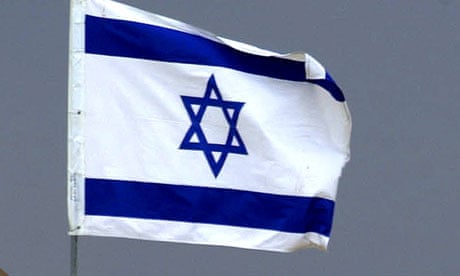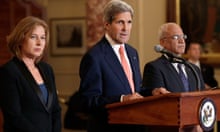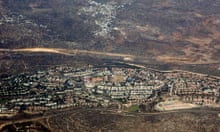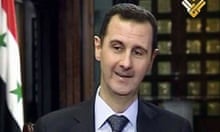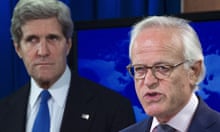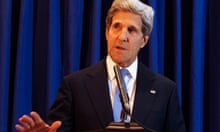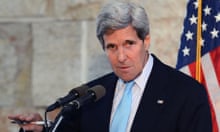The European Union has dealt a harsh blow to the Israeli settlement enterprise in a directive that insists all future agreements between the EU and Israel must explicitly exclude Jewish colonies in the West Bank or East Jerusalem.
The move, described by an Israeli official as an "earthquake", prompted furious criticism from the Israeli prime minister over "external diktats".
But it was hailed by Palestinians and their supporters as a significant political and economic sanction against settlements.
The EU guidelines will prohibit the issuing of grants, funding, prizes or scholarships unless a settlement exclusion clause is included. Israeli institutions and bodies situated across the pre-1967 Green Line – including the Golan Heights, occupied by Israel in 1967 and later annexed — will be automatically ineligible.
In order to secure agreements with the EU in the future, the Israeli government will be required to concede in writing that settlements in the West Bank and East Jerusalem are outside the state of Israel.
The directive, part of the 2014-20 financial framework, covers all areas of co-operation between the EU and Israel, including economics, science, culture, sports and academia.
In a broadcast statementon Tuesday evening , Binyamin Netanyahu said: "As prime minister of Israel, I will not allow the hundreds of thousands of Israelis who live in the West Bank, Golan Heights and our united capital Jerusalem to be harmed. We will not accept any external diktats about our borders. This matter will only be settled in direct negotiations between the parties."
The move was seen in Israel as a penalty that could in future extend to settlement produce and goods destined for European markets.
Israel has become increasingly concerned about the EU adopting a more robust stance against settlements. Some member states are pressing for an EU-wide policy of labelling produce and goods originating in settlements to allow consumers to make informed choices on purchases.
An EU statement said the guidelines "set out the territorial limitations under which the commission will award EU support to Israeli entities … concern has been expressed in Europe that Israeli entities in the occupied territories could benefit from EU support. The purpose of these guidelines is to make a distinction between the state of Israel and the occupied territories when it comes to EU support."
The directive follows a decision by EU foreign ministers last December that "all agreements between the state of Israel and the EU must unequivocally and explicitly indicate their inapplicability to the territories occupied by Israel in 1967". All Israeli settlements are illegal under international law.
Other Israeli government ministers weighed in with criticism. The centrist finance minister, Yair Lapid, said the EU move "pushes peace further away instead of bringing it closer" and was "another in a long line of decisions that isolate Israel". He urged a return to peace talks, adding: "This is a miserable decision, which was made in very bad timing and thus sabotages the efforts that US secretary of state John Kerry is putting into bringing the sides back to the negotiation table."
Ze'ev Elkin, Israel's rightwing deputy foreign minister who lives in a West Bank settlement, told Army Radio the directive was a "big mistake", saying: "This is more fuel for Palestinian rejectionism."
Another minister, Silvan Shalom, said: "Once again, Europe has demonstrated just how detached it is, how it can't really be a full partner to the negotiations."
A senior Israeli official, who declined to be identified, told the Guardian: "Israel will have to explicitly express in writing the EU's position. We don't believe the EU's position should be forced down our throats like geese." He said it was impossible for Israel to agree to such a demand.
The directive would affect "all realms of co-operation", he added, and would result in "rising tension and increased friction" and "create a lot of bad blood".
Another Israeli official told Haaretz, which disclosed the new guidelines, the move was an "earthquake" that unprecedentedly turns "understandings and quiet agreements that the [EU] does not work beyond the Green Line [into] formal, binding policy".
Hanan Ashrawi, a senior Palestinian official, welcomed the guidelines. "The EU has moved from the level of statements, declarations and denunciations to effective policy decisions and concrete steps, which constitute a qualitative shift that will have a positive impact on the chances of peace," she said.
"The Israeli occupation must be held to account, and Israel must comply with international and humanitarian law and the requirements for justice and peace."
The new requirements would affect the EuroMed Youth agreement, under negotiation, which involves joint youth projects and exchanges, said Haaretz.
Another example would be applications from Israel to the EU's research and technical development programme, an EU source told the Guardian.
The directive emerged as Kerry arrived in the region on his sixth visit in a drive to restart peace negotiations between Israel and the Palestinians. He is expected to meet the Palestinian president, Mahmoud Abbas, in Amman on Tuesday.
Unusually, the secretary of state is not scheduled to visit Jerusalem or meet the Israeli prime minister. Some analysts have suggested this is because Israel has signed up to Kerry's parameters for a resumption of talks, but he still needs agreement from the Palestinian side.
However, an unnamed Israeli minister was reported by Israel Radio as saying that Netanyahu's primary objective was merely to show willingness to negotiate and that he did not intend to engage in a far-reaching peace process.
